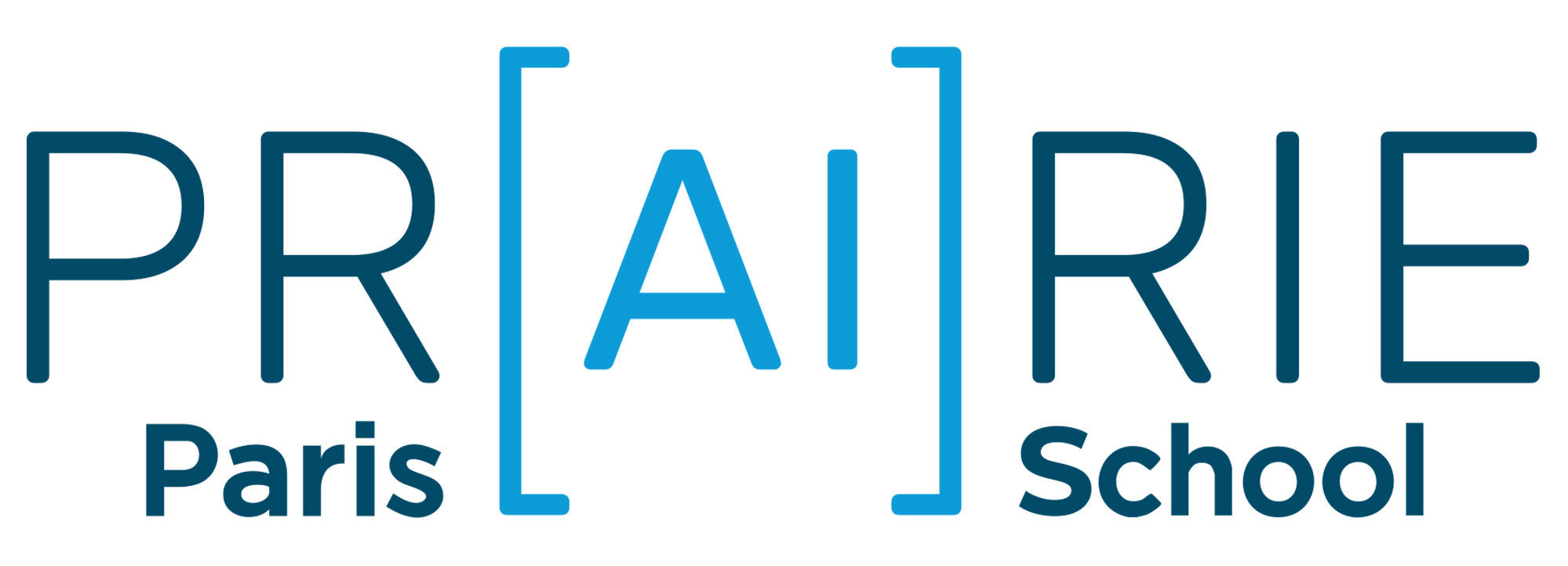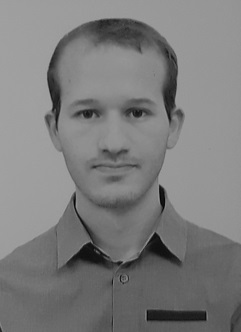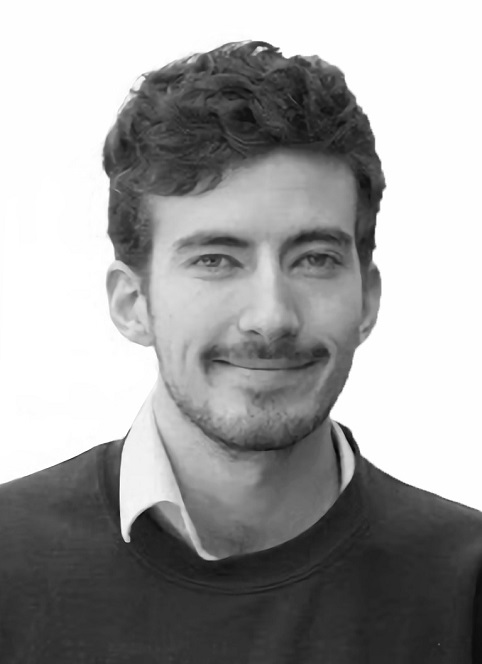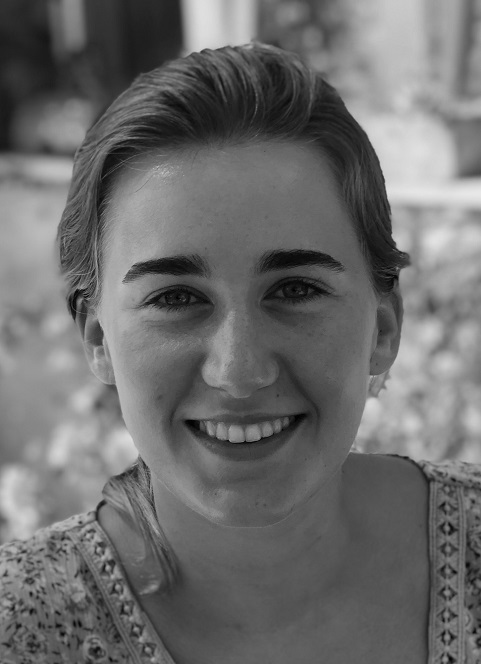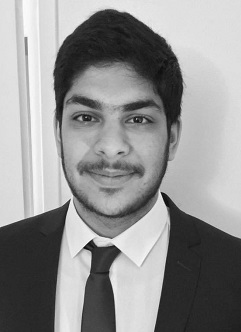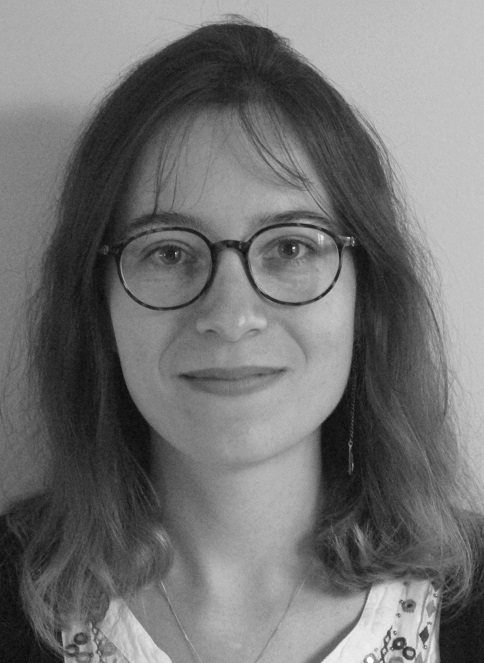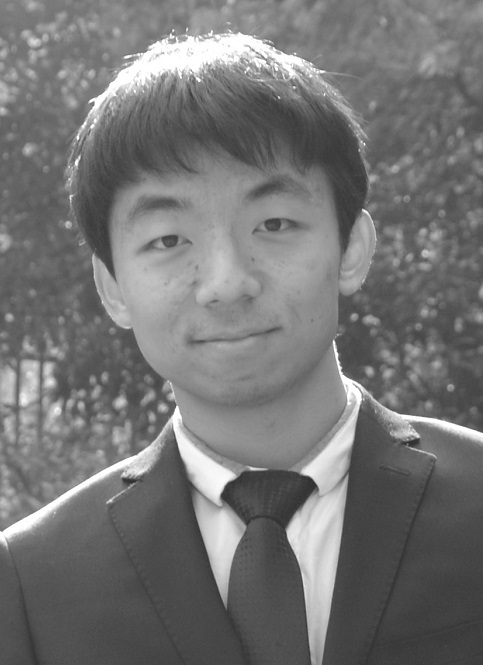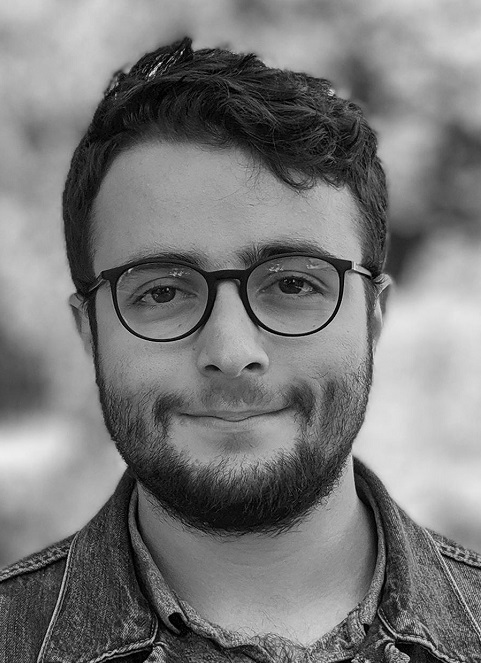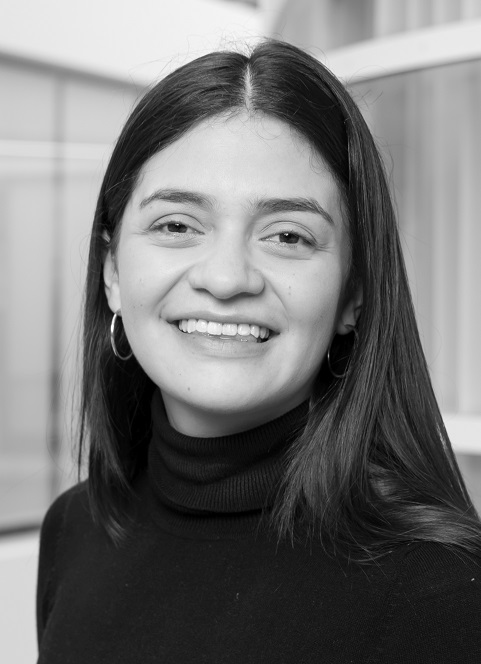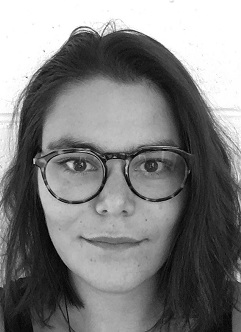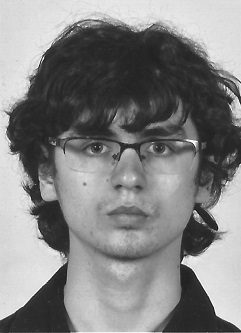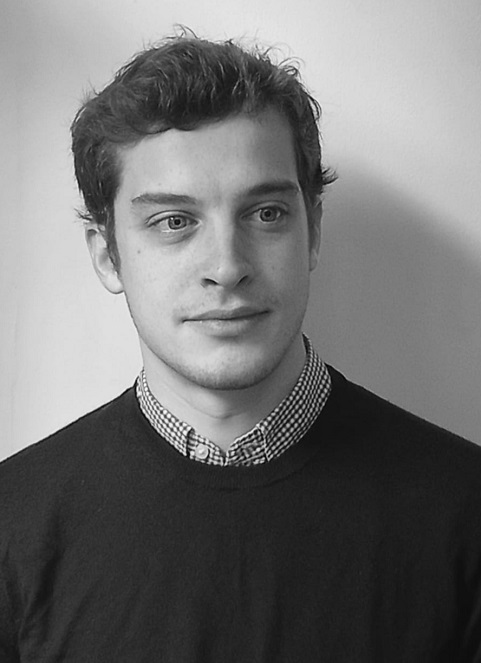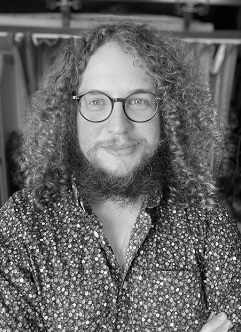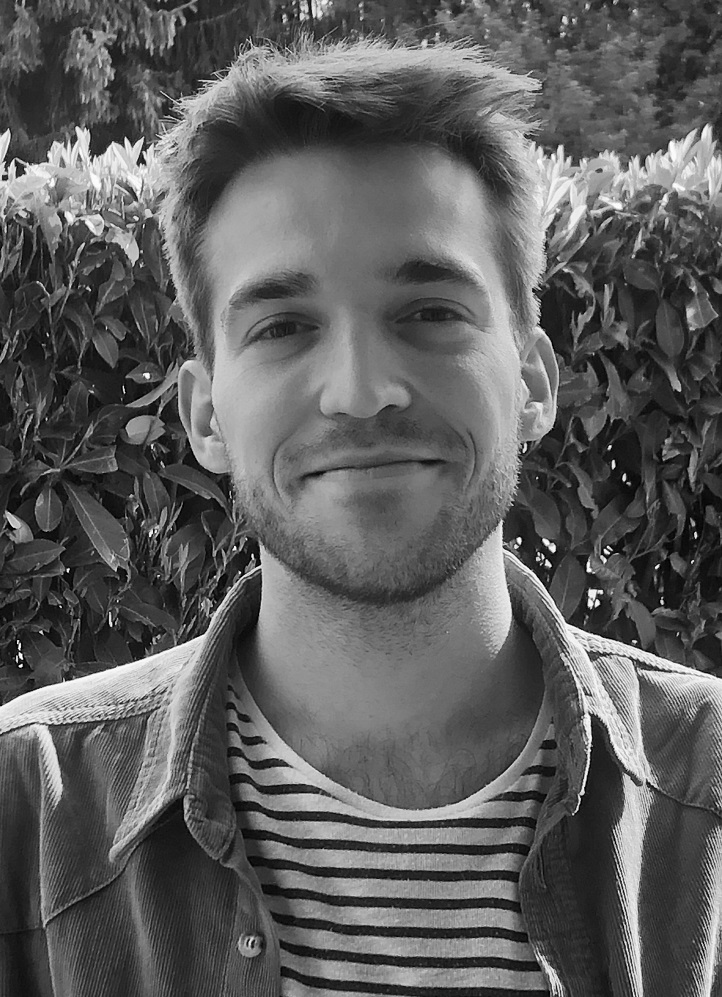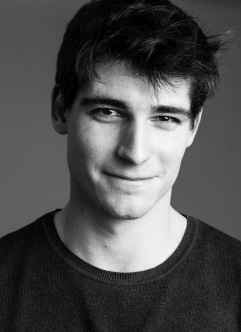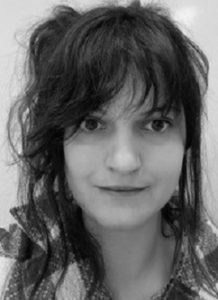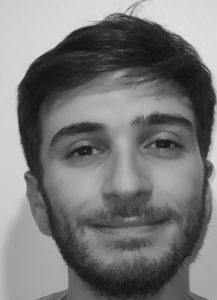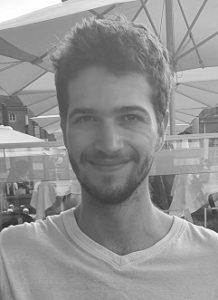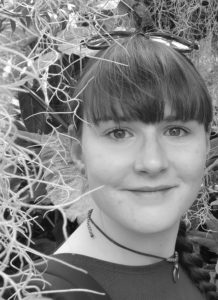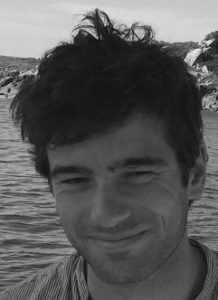MERAD Ibrahim
ibrahim.merad [at] etu.u-paris.fr
Short bio
Master 2 MVA , ENS Paris-Saclay
Thesis title
Apprentissage non-supervisé de représentations et applications en santé (Unsupervised representation learning and applications in healthcare).
Short abstract
Unsupervised representation learning has recently caught up with the performance of supervised approaches thanks to the introduction of contrastive methods. The mathematical study of these new methods is essential to better understand and exploit them as well as provide guarantees on their performance. Their application is especially relevant in healthcare where supervision is commonly lacking.
LE MOING Guillaume
guillaume.le-moing [at] inria.fr
Short bio
- Master’s degree in Science and Executive Engineering,
Mines ParisTech (diplôme d’ingénieur)
- Master’s degree in Artificial Intelligence and
Data-Science (IASD), PSL Research University
Thesis title
Learning robust representations for improved visual understanding.
Short abstract
Recent breakthroughs in the field of computer vision, and in particular those leveraging deep supervised learning, often require large high-quality labeled datasets. In this thesis, we are interested in reducing human supervision during training as well as building robust visual representations from a limited number of annotated samples. We will tackle the data scarcity problem by leveraging data augmentation by looking at both theoretical and practical aspects.
HUERTEVENT Marie
marie.huertevent [at] inria.fr
Short bio
Diplôme d’ingénieur, ENPC
Master MVA, ENS Cachan
Thesis title
Fusion of LiDAR, RADAR and RGB data for autonomous vehicle navigation.
Short abstract
We will explore the fusion of multiple sensory information for autonomous vehicles. An autonomous car navigates in uninstrumented real-world environments, and it actively collects desired data in a sample efficient way via a variety of sensors, including cameras, LiDARs, and Radars. To improve perception and navigation in such scenarios, we seek to combine weakly/self-supervised learning with multi-modal learning techniques.
HASSANALY Ravi
rhassana96 [at] gmail.com
Short bio
Master degree (Diplôme d’ingénieur) at Ecole Centrale de Lyon
Thesis title
Deep generative models for detection of anomalies in the brain.
Short abstract
Neuroimaging offers an unmatched description of the brain’s structure and physiology, however identifying subtle pathological changes simply by looking at images of the brain can be a difficult task. The aim of this PhD project is to develop innovative computational imaging tools to model abnormalities, defined as deviations from normal variability, from multimodal brain imaging. To that purpose, deep generative models will be used to generate pseudo-healthy images from real patients’ images for different modalities. Comparing pseudo-healthy and real images will provide individual maps of abnormalities.
GAUDFERNAU Fleur
fleur.gaudfernau [at] etu-paris.fr
Short bio
- Diplôme d’ingénieur (Institut des sciences et industries du vivant et de l’environnement – AgroParisTech)
- Master Mathématiques, Informatique, Décision et Organisation (Université Paris Dauphine-PSL)
- Master de sciences cognitives (CogMaster de l’ENS)
Thesis title
Detection and analysis of anomalies in fetal images for early diagnosis and care.
Short abstract
Agenesis of the corpus callosum is one of the most frequent fetal cerebral anomalies. It can cause motor, learning and social delays. This thesis aims at detecting automatically agenesis of the corpus callosum in fetal MRI, analyzing its temporal evolution during pregnancy, and correlating features extracted from the images with the children neurodevelopmental outcome. In a clinical setting, this would lead to a more precise diagnosis of the disease and prediction of its neurological impairments, ensuring an anticipated follow-up of the patients.
FU Changqing
cfu {at] ceremade.dauphine.fr
Short bio
Msc in Theoretical and Applied Mathematics, Dauphine – PSL
Bsc in Mathematics, Fudan
University
Thesis title
Evaluation of Generative Adversarial Networks.
Short abstract
Generative Adversarial Network (GAN) has been an important algorithm for image generation/ translation in recent years. Finding better quantitative measures to avoid overfitting and combining traditional methods with neural networks are among various lines of research. Application involves medical images and privacy preservation of image data.
FOUCHE Aziz
aziz.fouche [at] curie.fr
Short bio
M2 Bioinformatics & Modelling, Sorbonne Université
Thesis title
Integration of multi-level single cell molecular data to unravel the mechanisms of oncogene activation effect on cellular phenotypes.
Short abstract
We investigate oncogene effects on cancer cells driving the shift from wild-type to malignant phenotype using single-cell data. Getting rid of patient-specific information among several cancer datasets is a crucial consideration to answer this question, as it blurs tumoral signal of interest. Furthermore, developing methods allowing for information integration between several data acquisition techniques (RNA-seq, ATAC-seq…) may yield very insightful and relevant results for investigating systems biology of cancers.
DOUIN Adèle
L’Ecole normale supérieure - PSL
adele.douin [at] phys.ens.fr
Short bio
Master Degree “Physics of Complex Systems” at Université de Paris
Thesis title
Knit-quakes Prediction through Machine Learning.
Short abstract
Knitted fabric is a thread-based metamaterial that exhibits crackling noise both in the force signal and in the deformation field when deformed. The occurrence of those intermittent, scale-invariant events cannot be accurately predicted at the time being, as in most systems with similar avalanche-like behavior. However, Machine Learning methods have proven to be a useful tool when dealing with time-series predictions and image processing, giving hope to be able to predict relevant knit-quakes quantities.
DECOUX Antoine
antoine.decoux [at] laposte.net
Short bio
Statistic Engineering Degree at Ecole National de l’Analyse de la Statistique et de l’Analyse de l’Information (ENSAI)
Thesis title
Choice of Strategy and application conditions of Machine Learning algorithms apply to radiomic data.
Short abstract
The goal is to study the effect of different methodological choices during the use of machine learning algorithms on radiomic data, especially on predictive power and reproductibility. Different problematics will be studied, including prediction of medical treatment outcome of immunotherapy for lung and kidney cancers.
CAPTIER Nicolas
nicolas.captier [at] curie.fr
Short bio
M2, École polytechnique – MVA
Thesis title
Multimodal and integrative analysis of genomics, radiomics and pathological data for the prediction of response to immunotherapy in lung cancer.
Short abstract
We aim to develop supervised and unsupervised machine learning methods to identify signatures of the response to immunotherapy in non-small cell lung cancer, through the integration of genomics, radiomics (extracted from PET and CT images) and pathological data. We will interpret them to decipher biological pathways and mechanisms modulating immune responses.
BRION BOUVIER Florie
f.brionbouvier [at] gmail.com
Short bio
Master of Science in Public Health, Comparative Effectiveness Research (University of Paris)
Thesis title
Estimation of the Individual Treatment Effect via Machine Learning using an Individual Participant Meta-Analysis.
Short abstract
Personalized medicine aims at tailoring a treatment to the individual characteristics of each patient. One key aspect of personalized medicine is to identify the subgroups of patients who benefit from an intervention, which we can do by estimating the Individual Treatment Effect (ITE). My goal is to develop Machine Learning methods to estimate the ITE using Individual Participant Meta-Analyses with binary and time-to-event outcomes. I will develop these methods on RCTs and observational data. I will also use federated learning to estimate the ITE.
BLASSEL Luc
luc.blassel [at] pasteur.fr
Short bio
- Diplome d’ingénieur (AgroParisTech)
- Masters in science (Dauphine – PSL)
Thesis title
Big Data and Machine learning for alignment in genomics.
Short abstract
With the
ever growing quantity of high-quality sequence data, machine learning is
becoming more and more useful in genomics.
The goal of
my project is to use machine learning methods to improve alignment of DNA
sequencing data on genomes.
BENICHOU Alexis
alexis.benichou [at] pasteur.fr
Short bio
Master in Physics of Complex Systems at Université de Paris
Thesis title
Structural Basis of Neural Computation and Behavior.
Short abstract
Behavior and decision-making are determined by physical processes taking place in the complex environment of the nervous system. During the last 3-5 years, breakthroughs in experimental techniques have made it possible to map the wiring diagram (the physical connectome) of the full central nervous systems of simple model organisms at the level of single synapses and portions of the brain for higher animals. Moreover, we can now control the activity of individual neurons in live animals through optogenetic stimulation and record the resulting behavior. Together this offers the occasion to reverse engineer the physical basis of behavior. The current project aims to leverage simultaneous access to the wiring of the central nervous system of Drosophila melanogaster larva and to existing data from large-scale behavior screens, which record the effect of individual activation or silencing of the majority of the larva’s neurons, in order to address the following question: What constraints do the structure of the connectome impose on an organism’s capability to process information and encode behavior? Specifically, it will combine modern methods from machine learning and network science to investigate how the circuitry of the Drosophila larva’s nervous system influences the way it encodes behavior.
ABULIMITI Alafate
alafate.abulimiti [at] inria.fr
Short bio
- Master degree in Big Data Management and Analytic, University of Tours
- Engineer degree in Computer Science, Polytech Tours
- Bachelor degree in Applied Physics, Beijing Institute of Technology
Thesis title
The role of rapport in human-conversational agent interaction: Modeling conversation to improve task performance in human-agent interaction.
Short abstract
Human interaction is a complex process, and understanding and structuring the dynamics of the conversation is a necessary step to produce a virtual agent capable of interacting as a social agent. The rapport is a very important factor in the design of social agents. The social agent chooses the proper conversational actions according to the verbal and non-verbal characteristics of the interlocutor in order to maintain or increase the level of rapport while performing a specific task. During the doctoral program, I will use the decision system supported by game theory and deep reinforcement learning to build different models. Then, by using different metrics, I will evaluate whether the addition of these models can improve agent performance.
GANASSALI Luca
INRIA / l’Ecole normale supérieure - PSL
luca.ganassali [at] inria.fr
Short bio
Graduated from Ecole Polytechnique in 2019
Master’s degree at Université Paris-Sud
Research domain
Machine Learning and Optimization
Thesis title
Statistical inference on graphs: the graph alignment problem.
Short abstract
We study inference problems in graphs and matrices, such as graph alignment, which aims at finding a matching between nodes of two graphs preserving most of the edges. In a Bayesian setting, several approaches may be followed: analyzing rigorously existing algorithms based on random models to determine the regimes in which they may succeed, look at the information-theoretical and computational thresholds, or design and propose new algorithms that explore new regimes.
CHADEBEC Clément
clement.chadebec [at] sorbonne-universite.fr
Short bio
- Master 2 – Mathématiques, Vision & Apprentissage – ENS Paris-Saclay
- Ingénieur Civil des Mines de Paris – Mines ParisTech
Thesis title
Exploration of the latent space modelling of Variational Autoencoders.
Short abstract
In the medical field, the lack of data resulting in low patient variability remains a key issue. For example, in neuroscience, practitioners have to deal with potentially very high-dimensional data combined with a very small number of samples. Generative models such as variational autoencoders (VAE) may reveal particularly well suited to perform dimension reduction on such data and their generative capacity could be used for data augmentation. Unfortunately, VAEs perform weakly when trained on a (very) small number of data and the underlying structure of the latent space remains poorly understood. We believe that further investigating the latent space geometry of these generative models could allow us to overcome these issues.
MASSON Jean-Baptiste
jean-baptiste.masson [at] pasteur.fr
Short bio
CSO of AVATAR MEDICAL, Principal investigator of the Decision and Bayesian computation laboratory, visiting scientist at Janelia research campus (2014-2019), visiting scientist at Institut Curie (2013), recipient of “Prix des innovateurs Ile de France” (2022) and the StartULM (2018), C’nano innovation (2017) and Young researcher price of the French Biophysics Society (2009).
Topics of interest
Bayesian inference, neuroscience, biological decision-making, statistical physics and data processing in virtual reality
Project in Prairie
Jean-Baptiste Masson will focus on Bayesian induction, structured inference, physical environment modeling and statistical physics to probe learning in insect brains using neuronal, connectome and behavior imaging. He will organize every two years symposium on links between neuroscience, AI and physics; and a graduate class on structured inference.
Quote
How are insects able to perform complex probabilistic tasks by leveraging only small small neural networks, whereas machine-learning tasks often require large-scale architectures and extensive training on massive datasets? Evolution is able to shape decision-making in small neural circuits while maintaining high performance. By joining physical modelling, supervised and unsupervised structured inferences, Bayesian induction and numerical simulations, we can probe how evolution programmed robust decision making in the “brain“ of insects. In turn, we can extract key neural circuits from these insects and test their performance in real-world tasks.
Team
BARRÉ Chloé
Postdoctoral researcher
BENICHOU Alexis
PhD Student
GODARD Charlotte
PhD Student
VERDIER Hippolyte
PhD Student
